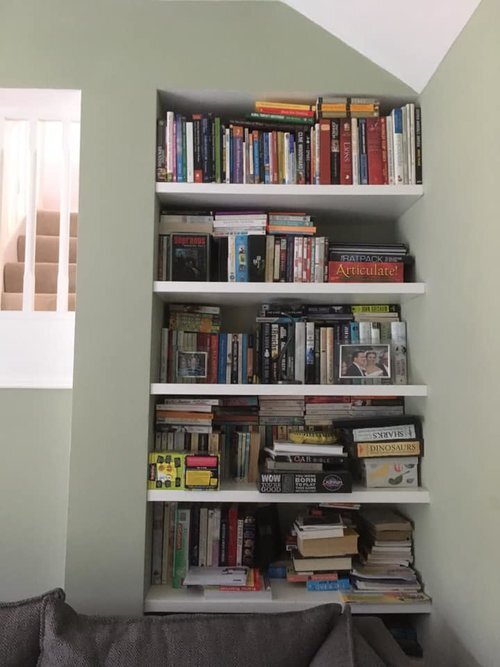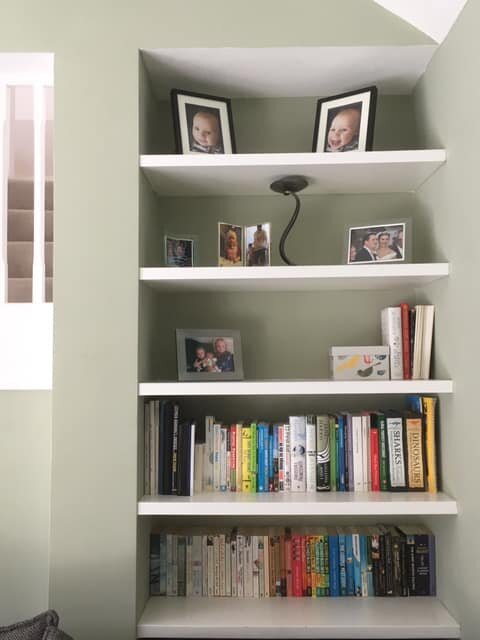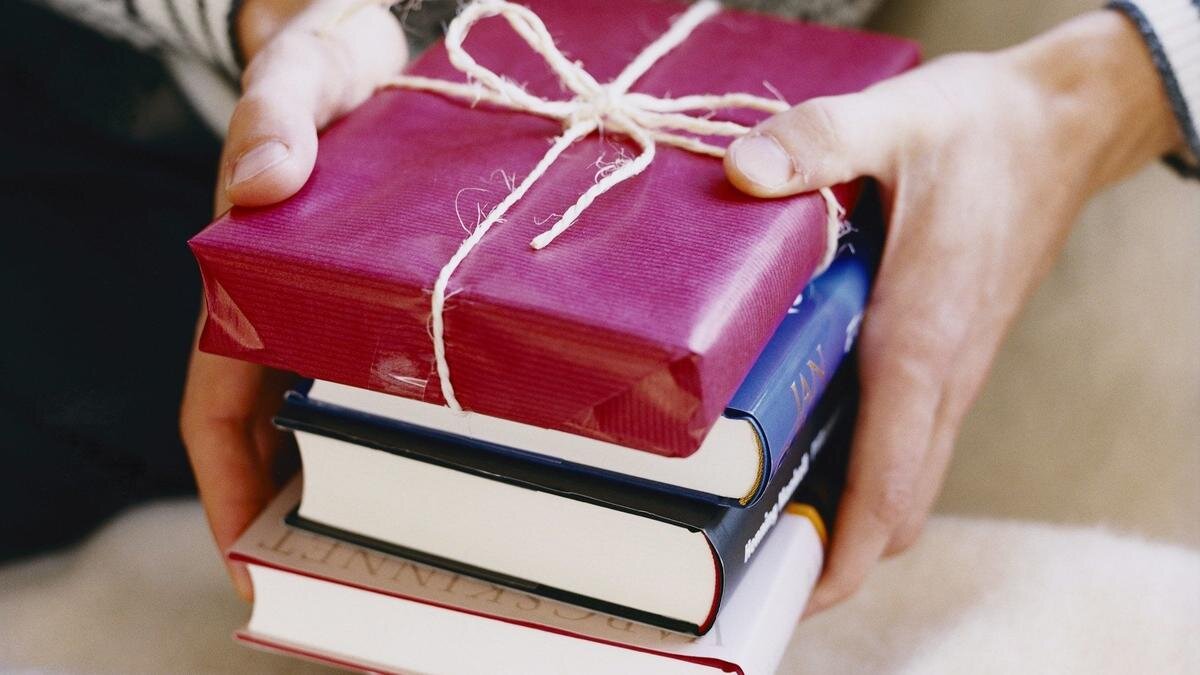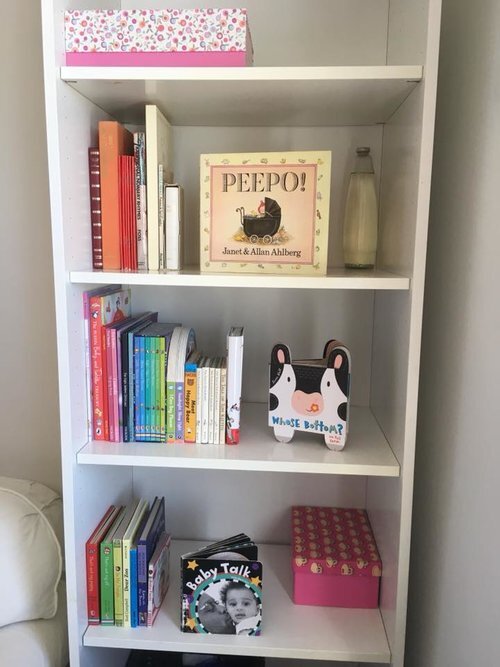8 Questions to Ask Yourself when Decluttering your Books
For some of the clients I support, books are one of the hardest categories to declutter. There are so many memories attached to books. Perhaps it’s one of our favourite childhood books and we can recall vivid memories of us reading the book tucked up in bed with our parents. Perhaps it’s a textbook that supported us in obtaining a top mark in a school subject, a degree or in our first job. Perhaps it’s a book from a relative or friend which helped us through a difficult time in our lives.
The truth is, if any of those examples above resonate with you, I want to reassure you that there is no pressure to get rid of books. There is no ‘perfect’ target number of books one should own. A few years ago, Marie Kondo came under criticism for ‘suggesting’ we should only own 30 books. However, Marie was misquoted. What was not understood at the time was that the 30 books she referred to was the perfect number for her. Books are personal. You can own as many or as little as you want.
Someone once asked me: ‘What about the books that I don’t read but bring me joy just by being on my shelves?’ My answer: Keep them, because their existence in your home makes you feel good! As well as being a source of knowledge, books are also sentimental items or a way to decorate your home in your own unique style.
Positive Decluttering
When we’re decluttering, the key is to make the process a positive one. That’s one of the reasons the KonMari Method is so successful: instead of focusing on how much you want to get rid of, you focus instead on what you’d like to keep. This puts you in a positive mindset and allows you to identify the items that you’re connected to the most. Who wouldn’t want to be surrounded with items that are useful and joyful?
Through the positive process of decluttering, we’re setting the standard for everything we want to keep in our lives. So don’t be alarmed if many items in your home no longer pass that test and have to go. But when it comes to our treasured books, how can we begin to identify if a book is a keeper or needs to be passed on to someone else?
Client AF - Books Before
Client AF - Books After
Once my client has gathered all of their books into one place (providing they don’t own a library of books, which requires a completely different tidying strategy! More on that in another post), I ask them to pick up a book, one at a time and to begin a dialogue about the book’s history. Sometimes the answer to whether it stays or goes is an easy one. But there are some books that are more difficult to make a decision about. If you struggle to let go of books, here are 8 key questions I use with my clients to determine whether a book has the right to achieving permanent residence status in their home…
1. When did you buy it? A common reaction for most of my clients is that they’ve forgotten they own some of the books they come across, and they can’t even identify when and where they bought the book in the first place. Most of these books end up being passed on to others. If you can identify when you bought the book and if it was a significant memory for you, explore that memory. Perhaps the moment you bought the book was more significant than the book itself? Perhaps you bought the book because the cover was enticing? Maybe you had just been paid and went on a spending spree? Those endorphins you experienced at the time you bought the book are less about the book, and more about riding that happy wave in the moment. With this in mind, let’s move on to the next question…
2. Have you actually read it? It’s perfectly common to come across books that you have never read. If this is the case, then set yourself a time frame in which you’re going to read this book (by the end of the month, by winter - whatever time frame works for you). If you haven’t read it when that deadline comes, then praise yourself for giving the book a second chance and feel free to let that book go with gratitude. It’s not going to do anyone any good collecting dust on a shelf. Even that book you bought on healthy eating a few years ago when you were going through a fitness phase… as Jim Kwik would say: ‘Unread self help eventually becomes shelf help’.
What about the books that you’ve only read halfway? Well, perhaps they were only meant to be read halfway. If you’re honest with yourself, there’s a reason why you didn’t finish them: maybe the content wasn’t what you were expecting, the book didn’t interest you, the topic itself was boring, or you found something more interesting to read. All these reasons are perfectly acceptable explanations on why books should be passed on to someone else. Let go of that guilt and don’t feel pressurised to read them until the end, even if you spent money of them. That money is gone whether you like it or not. What you still have is your time, so don’t allow the book to become a double waster and rob you of this time. Some books fulfill their purpose by teaching you what you shouldn’t be reading.
Can you spot our beloved Harry Potter series?
3. Does this book belong in your book ‘hall of fame’? Some of my clients tell me they feel like they should hold on to a book because they read it 20 times. If they’ve read it 20 times they must truly love the book right? I’d say about 80% of the time this is correct. However, there are some clients that feel they should hold to the book even though the book no longer reflects their current lifestyle. It’s important to be aware of this. Unless that book goes into your book ‘hall of fame’ (for me, it’s the Harry Potter series), then it doesn’t need to stay just because it was once a much-loved item in your home. Who knows if I’ll still feel the same about my Harry Potter books in 10 years time? Our lives and our preferences are constantly changing and adapting as we learn, grow and develop, and I believe our home environment should always work in parallel to this.
4. What role does this book play in your life? This question concerns the purpose of the book. Is it useful? Does it bring you joy when you see it on your shelf? Does it support you in achieving your vision of how you want your home and your ideal lifestyle to be? If the answer is yes to any of the above, keep it with confidence.
5. Did you buy this book on an impulse? Hands up if you’ve ever bought a book online or in a store on the spur of the moment… Why do we do this? Because it’s so easy! I’ve been guilty of following a friend’s recommendation and buying a book without actually considering if it’s something I want to invest my time in. I’ve also been guilty of following an advertisement about the latest book because everyone is reading it and before I knew it, I’d swiped left on Amazon and it is right by my side within 24 hours. Then reality hits: I now have to invest my time in reading it.
This is the key idea to consider: Is this book worthy of your time and attention? The truth is, if you have an average reading speed, a standard book of 300 pages will take you about 8.3 hours to read. The best time to read a book is within a week of buying that book, otherwise the chances you’ll ever read it diminish over time. In all likelihood, books bought on impulse have fulfilled their purpose because they brought you joy in the moment you bought them. That’s the reason why you haven’t read them: because they’ve already done their job. Now it’s time to donate them to a good place where someone will purchase them with the intent to actually read them.
6. Was this book a gift? How lovely it is to receive the gift of a book. What isn’t lovely is the guilt we feel when that book isn’t to our taste. Are you willing to devote 8 hours of your life to it just because someone bought if for you? If it’s to your taste then the answer is obvious. If it isn’t, let it go (and let that guilt go to). In most cases, the person who gifted you the book won’t ever go rummaging through your home to find it. If you do know a person who rummages though, it may be time to KonMari your friendships!
7. Would you buy this book today if you saw it in a shop or online? This is a question of relevance. Is this book still relevant in your life? If you wouldn’t buy it right now, the chances are you are never going to find this book useful or joyful in the future. Unless it’s a book related to something you plan to do in the future, and it acts as a source of inspiration to support you in fulfilling this goal, it’s time to let them go.
8. Can you get this book in the library? Or is the information available online? When it comes to reference books, textbooks and manuals in my clients’ homes, we find that many of them are outdated, redundant or unnecessary as most of the information is now available online. If the book doesn’t deserve a permanent place in your home but you like it, be reassured that you can always check it out of your library. Books take up a lot of storage space and it’s worth remembering that your home is your living space, not your storage space.
Bonus question: Are you keeping this book just because you hope to loan it to someone else? Until I started working with clients, I had no idea that this was a thing! Referring to a Lonely Planet on Fiji, published in 2002, my client told me ‘I want to keep that book because someone may travel to Fiji one day and they may find it useful’. But it was published in 2002… Fiji may have changed a little bit in 18 years don’t you think? Is this really going to be useful to your potential friend travelling to Fiji? How much is the book worth? £10? So let’s compare how much the space for this book is worth in your home to store if for another 10-20 years in the hope that one of your friends goes to Fiji, and then actually wants to take you up on your offer of an outdated book. To cut a long story short, it just isn’t worth it. Your intention is beautiful though!
I have had clients who have kept a library of their childrens’ books because they want to use them with their grandchildren one day (even though they don’t have any grandchildren yet). If this brings you joy, then of course, the answer is a resounding ‘keep keep keep!’. Just be careful of the amount you keep and pay particular attention to the content of the books. Is Peppa Pig going to be relevant in 20 years time? I hope I’m not alone here when I say ‘I bloody hope not’. Apologies for swearing but Peppa and I don’t necessarily see eye to eye.
Client JD - Children’s Bookshelf
Client CS kept some of her children’s childhood books for her future grandchildren…
So these are just some of the things to explore when you’re decluttering your books. I really look forward to book tidying sessions with my clients because this time spent together reveals so much about their personality. We keep books for a whole host of reasons, but many of those reasons are in line with some of our deepest values. And what a wonderful opportunity that is to gain a unique insight into our lives!
Have you decluttered your books before?
Can can you relate to any of the questions or points above? I’d love to hear your experiences in the comments.
For more support on tidying and decluttering your books, visit my KonMari section on books.
If you’re feeling overwhelmed by the contents of your home and would like some support with your own decluttering journey, please feel free to reach out to me or take a look at my services page.









